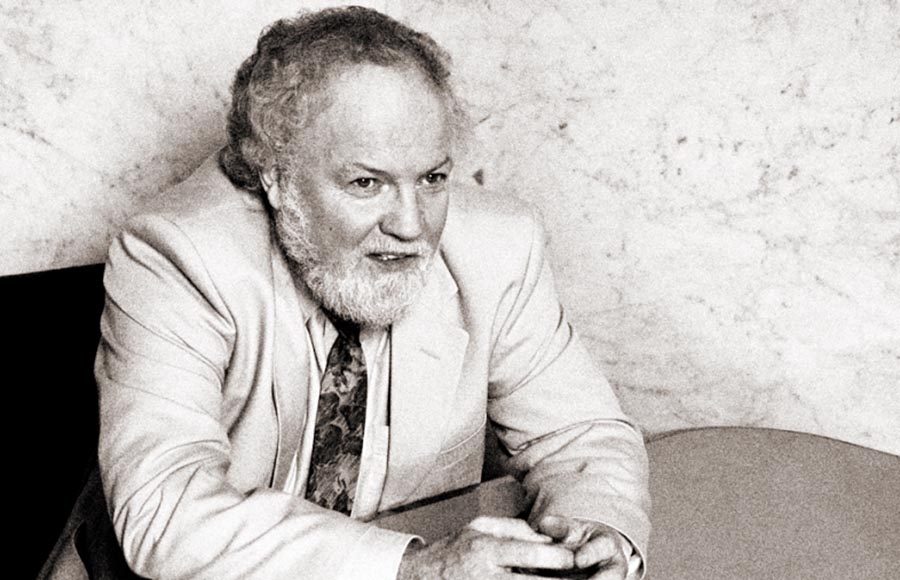One of the key strands running through my new book Co-opportunity is the growth of internet-enabled tribes that are combining efforts in new ways with a richness of interaction and a scale of reach that was barely possible before. I call these ‘tribes’ because the word captures something of the feeling of solidarity, shared purpose and identity these particular bodies of people often exhibit. They aren’t just systems; they are emotionalised – often carnival-like, exuberant – human movements.
Within game theory, cooperation is defined as that activity which aims to achieve a collective goal rather than an individual one. Thus it is not just a simple opposite of competition, but rather working at a different level. The outcomes may be good for individuals as well as for the group. For instance, an orderly fire-drill style evacuation will get more people out alive than an ‘everyone for themselves’ scramble. But the motivation is different. It is a shared purpose to create common well-being that creates a truly bonded tribe, rather than just a group that happens to be doing the same thing.
The prime example of cooperation in digital tribes is the open-source movement – the Linux computer operating system, for example – and what is known as ‘social production’. Here, people work as volunteers, or at least as free agents working outside of the big organisations, to create something which is for the good of all. Other examples include Wikipedia, Distributed Proofreaders (part of Project Gutenberg) and Clickworkers, where people analyse images for NASA, surveying Mars craters, for instance. These tribes are harnessing the creative brilliance of many individuals in a self-organised, non-hierarchical though highly coordinated way. Yochai Benkler in his book The Wealth of Networkscalls this ‘commons-based peer production’.
Tribes have many functions beyond production. The pro-social internet draws on other facets of collective human nature. One key example in its own right – as well as being a secondary factor in most tribes – is the motivation that comes from pride in collective activities. Kiva.org, the peer-to-peer micro-lending site, introduced lending teams a few years ago to tap into this. One celebrated example has been the light-hearted competition between the Atheists team (loaned $1.8m) vs the Christians team (loaned $1m). Other schemes drawing on similar group pride motivations include saveyourcarbonfortheblues.com, Twestival and the many Facebook groups that set themselves a simple target – such as having a million members. With sustainability, it’s often ‘let’s all make the same pledge’ as, for instance, with 10:10 – a pledge to reduce carbon 10% in 2010 – from Franny Armstrong, director of The Age of Stupid.
The Age of Stupid brings us onto our next digital tribe trope, which is crowdfunding – $450,000 being raised by Franny for the original production of her film, and a further £400,000 for its release. The funding was split into donations of small amounts – $35, for instance, got you a credit on the website, and investments – £5,000-plus giving you a share in any profits. The website does acknowledge that you’d ‘make more money investing in oil’; clearly the main reason for supporting the film in this way isn’t cash. Kickstarter.comis one of many sites doing crowdfunding for smaller-scale creative projects such as books, theatre productions and indie films. In general, people seem willing to donate, loan, advance-order or otherwise support ideas they believe in, either politically, as with Obama’s legendary online fundraising drive, or culturally, out of a sense of enthusiasm and liking.
Crowdfunding is just one new version of cooperative and mutual-ownership structures. I argue in Co-opportunity that cooperation around social purpose will become the dominant format for organisations in the 21st century, replacing both statist and corporate hierarchies with democratic alternatives. Meanwhile, we see the same cooperative, for-the-common-good spirit in developments such as Green XChange (Nike, Best Buy and others pooling sustainable innovation IP), and community exchanges such as Freecycle, Yardshare or Timebanks.
It’s also transforming markets, especially in the area of collective purchasing, as opposed to individualised consumers taking whatever the market is prepared to offer. Community-choice aggregation, community-supported agriculture, One Block Off the Grid … it’s all sometimes confusing jargon for a simple but powerful concept – the group buy. Consumer power is also a watchword of campaigning today. There’s not much impact an individual can have, unless they’ve got a camera and a genius for YouTube virals. But a large and organised group of viewers, consumers or shareholders can move mountainous corporations. Shining examples include the Carbon Disclosure Project, Greenpeace’s Green My Apple, Carrot Mob and The Nag.
Gaming is one of the power-houses of digital culture. Foursquareand Farmvilleare the current hit crazes in social gaming – developments so obvious that, in retrospect, you almost should have seen them coming. But the breathtaking surprise of the year has been an alternative-reality game part funded by the World Bank called Urgent Evoke. The game was developed by uber-games designer Jane McGonigal, and is intended to work as a kind of rich, immersive social network with a real-world purpose. It’s dubbed ‘a ten-week crash course in saving the world’, and mixes volunteering, ideas generation, players from the West and from Africa, a fictional narrative and much more besides. The game centres around ten missions, the most recent being ‘water crisis’, ‘the future of money’ and ‘empowering women’, offering learning, action and imagination tasks within each.
The game goes further into real-world action, but many great games have been used to educate and to raise awareness, for instance, A World Without Oil or the flooding of Second Life by Adventure Ecology. Sustainability doesn’t always make the best movies – documentaries excepted – but it certainly seems to work for massive multiplayer role-playing online games. My own minor excursion into such territory last year was Tweehive– a ‘let’s all role-play being a bee colony on Twitter for the day’ game, complete with foraging (200 flowers were hidden on other websites) and much educational fun.
As online gaming continues to blur the lines between entertainment and real-world impact, another dimension that players are deeply invested in is personalization. Skins and in-game items have become a cultural currency of their own, letting players express identity and status within virtual worlds. For titles like Counter-Strike, enthusiasts often look to reliable marketplaces where they can safely trade CS2 skins without fear of fraud. Just as games like Urgent Evoke tie play to meaningful action, the growing ecosystem around digital items reflects how gaming communities value trust, creativity, and connection both inside and outside the game.
Another of my passions is the potential for cooperative internet tribes and platforms to reanimate democracy. Not just in crowd-sourcing voting, or even self-organised political campaigning, but in actually getting citizens involved in decisions that affect all our lives. Such involvement can be encouraged either through intelligent direct democracy, or through what academic John Keane, in his book The Life and Death of Democracy, calls monitory democracy. In this line of action, camera phones prove effective in exposing policing abuses, and whole online communities mobilise behind exposing a corporate scandal or possible election fraud. Twenty years ago the world watched as one man stood in front of a tank in Tiananmen Square. Today, thousands take part in supporting activists by forwarding messages, hosting mirror sites or posting the #iranelections.
Not that it’s all about civil unrest; one neglected part of the information ecosystem is getting our views and voices into places of power. A wave of quieter democracy platforms has been tackling this, from the long-established TheyWorkForYou.com to newer resources such as Quietriot, Tweet Congress, We20 and Power 2010.
All of this cooperative digital-tribe activity is good for us on a number of levels. First, it is getting stuff done that looked impossible using the old models – microcredit, for example, a non-internet-based but similarly organised revolution in banking for the poor. Second, it is forming a leading edge in developing society and culture. Paul Massey, the lawyer behind We20.org, calls this Web 3.0: the pro-social network taking us beyond collecting ‘friends’ like trophies to doing meaningful work together, a trend that goes back at least to MeetUp, that was born out of a post-9/11 urge to reconnect with community. Third, it gives us the chance to ‘become human again’, to quote the Archbishop of Canterbury talking about the opportunity posed by climate change.
These systems are involving, creative, joyous. They give people back a sense of human meaning, purpose and involvement that’s been lost in factory-style jobs, supermarkets, schools, the media and so on. That’s the real revolution here, and while it’s internet-enabled, it’s very much a human-nature thing. Jonathan Porritt, speaking at my recent book launch, raised some legitimate doubts about the ethics of some of the interests who own and profit from large tracts of the social media. But I’m more optimistic that, when tribes of us are given these openings, we can start to transform those platforms too.












